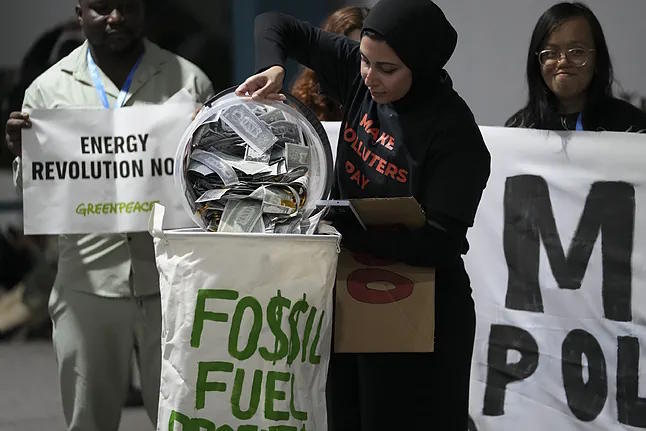New York Climate Week aims to reinvigorate social mobilization in the face of "new realities" and send a message to world leaders participating in the UN General Assembly. The Stockholm Environment Institute (SEI) released a damning report warning how 17 of the top 20 oil-producing countries plan to accelerate extraction by 2030, aiming to "extract more than double the volume that would limit global warming to 1.5 degrees."
As the countdown to COP30 in Belém, Brazil, to be held in November, the host country has tarnished its record with the approval of the so-called "devastation law," which some experts believe represents "the biggest setback in environmental protection in 40 years."
The summit that was supposed to symbolize the protection of the Amazon is at risk of becoming a reflection of Brazil's great contradiction, the eighth largest oil producer in the world. President Lula da Silva's vetoes to the devastation law, attempting to amend what was approved by Congress, leave oil exploitation and road construction in the Amazon region untouched.
The United States' withdrawal from the Paris Agreement announced by President Trump, aligning with countries like Iran, Libya, and Yemen, will take effect in 2026 and could trigger a "domino effect," although so far only Argentine President Javier Milei - who withdrew his delegation from COP29 in Baku - has flirted with the idea.
The European Union has recalibrated its stance and weakened the Green Deal, while pressures from far-right parties across the continent to curb renewable energy, suspend low-emission zones, and abandon the 2050 carbon neutrality goal are growing.
"We are facing a critical year for climate action," warns Helen Clarkson, CEO of the Climate Group organizing the thousand events taking place this week in New York. "Our motto this year is Power On because we need to stay focused, be ambitious, and keep progressing."
"Humanity cannot afford to stumble," warned UN Climate Change Executive Secretary Simon Stiell at an event organized by the coalition of mayors, business leaders, activists, and scientists known as Mission 2025. "If we set aside the noise, the facts show a world aligned with the Paris Agreement... Investment in renewable energies has multiplied tenfold in the past decade. The transition to clean energy is thriving in almost all major economies, reaching two trillion dollars just last year."
Despite the dark clouds hanging over COP30, even limiting UN staff due to the exorbitant hotel prices, Stiell anticipated the arrival of "a new era of climate action," approaching the "real economy" and making an effort to "leave no one behind." The UN Climate Change Executive Secretary, however, tiptoed around the major taboo of oil.
"We need to move from transitioning to phasing out fossil fuels," warned Derik Broekhoff, one of the authors of the SEI report from Stockholm. "There is currently a significant disconnect between climate ambitions and what countries actually plan to do."
Brazil, taking the baton this year from three other petrostates (Egypt, United Arab Emirates, and Azerbaijan), is the epitome of this paradox. COP30 will be held in a record year for hydrocarbon production in the country, with an average of 3.7 million barrels of oil per day. The shadow of the energy giant Petrobras will loom over the entire summit, as well as the auction held in the spring for the exploitation of 47 lots near the mouth of the Amazon, considered by oil companies as the new and promising frontier.
